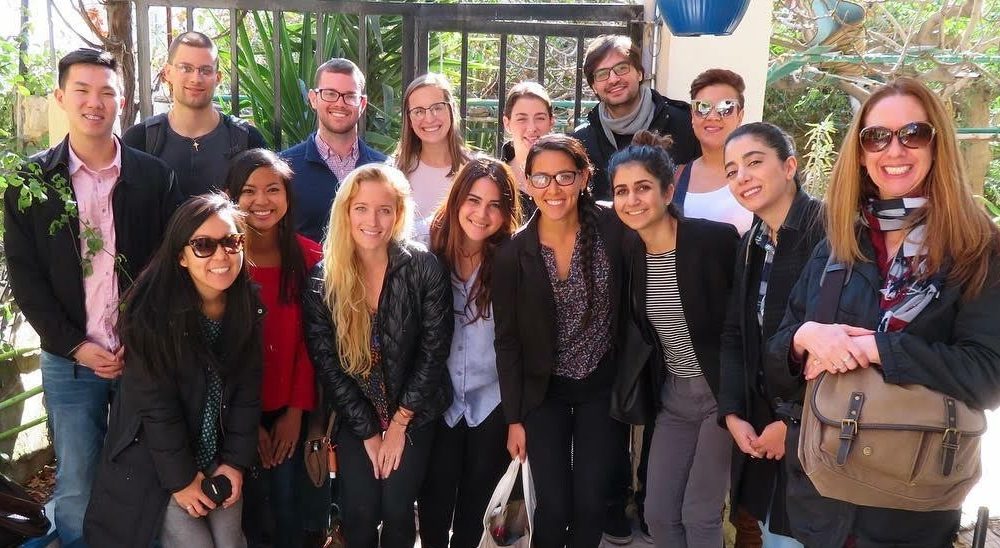IRAP recently concluded an annual student trip to our field office in Amman, Jordan, during which students gain hands-on experience working face to face with clients. The students then report back about their experience in their own words. Featured today is a piece written by American University Washington College of Law student, Allen Liu, in which he reflects on the limits of the refugee resettlement process for Iraqi refugees he met in Amman.
According to UNHCR, there is an estimated total of 733,000 refugees residing in Jordan with over 650,000 alone with Syrian origins. Most live in urban areas but over 100,000 still live in refugee camps. This year’s January student trip to IRAP’s Amman office included visits to NGOs that provide direct services to refugees, conversations with refugees from Syria and Iraq, and conducting intake interviews with refugees residing in Jordan.
For me, the most impactful experience on the trip was the frank conversations we had with nine Iraqi refugees about their living conditions in Jordan and the common plight they endure. In Jordan, Syrian refugees may only work in specific sectors of the economy, primarily involving manual labor. Otherwise, working for pay puts refugees at risk of being relocated to one of the two refugee camps in Jordan, where conditions are reportedly untenable. Non-Syrian refugees aren’t legally authorized to work at all.
For two hours, we spoke with nine Iraqi refugees, each of whom attended and graduated from a Master’s degree program in Iraq. They were computer scientists, network engineers, psychologists, teachers and professors, and accountants.
They were prohibited to work in the careers they studied so many years to attain. While each individual we spoke with risked their safety and well-being by working odd jobs, they continued doing so to support themselves and their families. Each person aspired to resettle and close this chapter of insecurity in their lives. Each person expressed hesitation in returning to Iraq because the country they left was no longer the same due, in part, to the large population migration. Each person was unlikely to be resettled because of the limited number of refugees that countries accept, nor would they be locally integrated into Jordanian society. They would each probably spend many more years, on top of the three they have already spent, in Jordan until it would be safe to return to Iraq.
For me, speaking with these Iraqis was incredibly uplifting, yet deeply frustrating. On the one hand, Iraqi refugees, like you and me, just want to live a healthy, stable, fulfilling life. They want to pursue their life’s passion. They want the best for their family and country. They want schooling for their children and health for their neighbors. On the other, for far too long, they’ve had to live unstable, insecure, and tenuous lives in a foreign country, due to no fault of their own, except for belonging to a particular social group or living in the wrong neighborhood back in Iraq. Their lives have been, and continue to be, put on hold. They are not allowed to locally integrate because of the Jordanian government’s refugee policies. They have to wait and see. The group we spoke with has been waiting for at least three years now. They’ll continue to wait for the foreseeable future.
In this context, IRAP’s Amman Office serves an important role in the refugee community. First and foremost, the office provides direct legal services by identifying strong candidates for resettlement based on the refugee’s degree of vulnerability and working to develop and submit their resettlement claim to UNHCR. They also identify refugees who are eligible to relocate through non-UNHCR programs. Even if the office is unable to move forward with a refugee’s case, they are referred to other NGOs in the city who can and do provide other forms of assistance. In this way, the office also serves as an important linkage between vulnerable refugees and organizations that provide non-legal aid on the ground. As refugees are not entitled to an attorney during the resettlement process, which can often times take years to complete, IRAP provides much-needed direct legal aid for refugees.




Comments are closed.